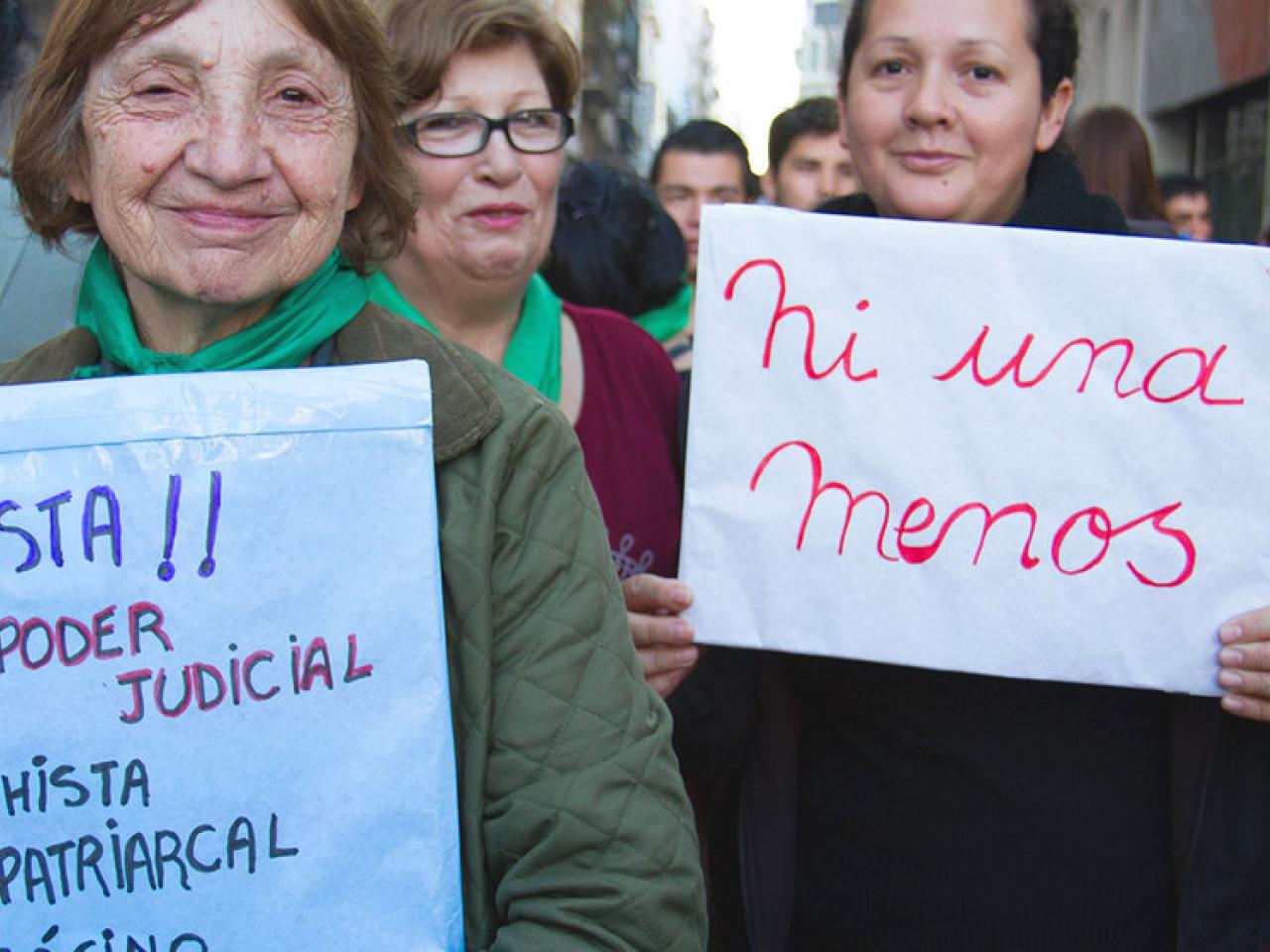Op-ed: We can no longer look away – Putting the Spotlight on Ending Violence against Women and Girls

In 2017, the European Union and the United Nations jointly launched an unprecedented global action – the Spotlight Initiative – to eliminate all forms of violence against women and girls by 2030. Here is why.
We know that globally one in every three women is subjected to sexual, physical or psychological violence during their life. In Tajikistan, the statistical data is incomplete. Yet 24 per cent of women aged 19-49 in Tajikistan have reported experiencing physical or sexual violence and 97 per cent of the perpetrators of violence for ever-married women are reported to be their current or former husbands.
For years, domestic violence has been considered a private family matter that no one should interfere with or even speak about. For generations, our gender stereotypes have made us all “normalize” violence and put the blame on women, justifying the behaviour of the perpetrators who should be held responsible for their crime of physically or emotionally violating women.
In Tajikistan, the legislation grants equal rights to both men and women and the country is committed to ensuring gender equality. However, we still have one of the lowest Gender Parity Index in the CIS region (0.679). And regardless of progress and evidence of important advancement in the last decade, patriarchy, harmful social norms and practices continue to perpetuate gender inequality.
Women and girls still face significant barriers in accessing sexual and reproductive health and rights, education, economic opportunities and advancement, and are under-represented in decision-making. Gender inequality fuels the high levels of violence against women and girls, which remains one of the most widespread human rights issues in Tajikistan.
Reliable and consistent data is still insufficient but existing reports show that violence against women in Tajikistan is persistent and generalized. However, while a large proportion of married women throughout the country experience domestic violence, only 2 per cent of women report the situation and seek justice.
Violence against women and girls undermines the health, dignity, security and autonomy of its survivors, who can suffer sexual and reproductive health consequences, including mental health issues, forced and unwanted pregnancies, unsafe abortions, infections and HIV, and even death. And this impacts our economy causing decreased productivity, lost wages and sick pay and requiring actions and resources from social services, justice and health systems and other direct and indirect costs with negative impacts on the national economy.
By signing the SDG agenda, Tajikistan, along with 193 countries in the world, committed to a multi-sectoral, rights-based, people-centered approach to sustainable development with a principle of equality and promise of ending all forms of discrimination and violence. None of the SDG goals can be achieved without addressing sexual and gender-based violence and ensuring gender equality.
2020 is the beginning of the Decade of Action till 2030 to accelerate achievement of SDGs and it is also the year of global review of 25 years of progress on the Beijing Declaration and Platform for Action – the most ambitious roadmap for the empowerment of women and girls.
At this key moment, amid important policy changes and legislative reforms to address gender-based violence, the European Union and the United Nations have jointly launched an ambitious global initiative called the Spotlight Initiative to promote urgent action. The initiative is one of the world’s largest investments to leverage political will and action to reform laws and policies, strengthen government and non-government institutions, take preventive actions, provide essential services to survivors, improve data and promote civic action and engagement.
In Tajikistan, from 2020-2023, the Spotlight Initiative will focus on addressing the root causes of violence against women and girls through a multi-sectoral and survivor-centered approach. It will be jointly implemented by UN-Women, UNDP, UNFPA and UNICEF in partnership with the Government, civil society, media and faith-based organizations. It will build on existing programs of the Government and various development partners to promote gender equality and support implementation of the Decree of the President of the Republic of Tajikistan “On measures to improve the status of women in the society” adopted in 2000 as well as the Domestic Violence Prevention Law adopted in 2013. The objective of Tajikistan Spotlight Initiative is very ambitious: it is to transform attitudes, gender stereotypes, patriarchal norms and behaviors, which are the biggest bottlenecks in eliminating discrimination and violence against women and girls.
By Dr. Pratibha Mehta, UN Resident Coordinator a.i. in Tajikistan. Lead image: Parviz Boboev, RC Office, Tajikistan

